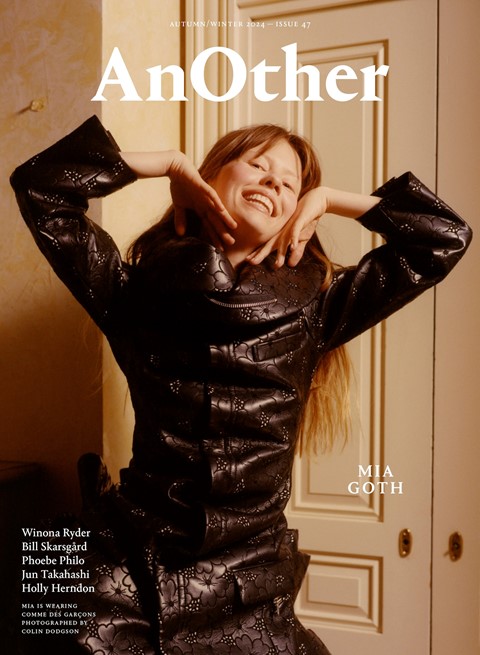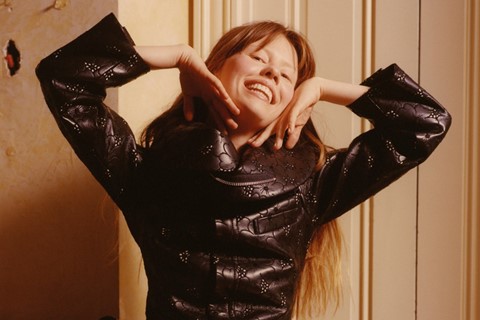This article is taken from the Autumn/Winter 2024 issue of AnOther Magazine:
On the morning of the day I Zoom into her apartment in Los Angeles, Mia Goth has just read an article in which the journalist accused her of hating acting. She’s indignant. I’m thunderstruck.
How could anyone who has been exposed to her films over the past decade not see a woman whose ability to convey the essence of other women in extreme, often horrendous situations, is so bone-marrow deep that it steals the breath away? Never mind that she spends a lot of our conversation talking about her craft, not in a pretentious, “they love me at Rada” way but in an open, curious, questioning way that’s convincing enough to make me wonder whether I should have taken a shot at stage or screen.
Performance as possession seems like a pretty fundamental idea when it comes to acting. But that’s why Mia Goth is on another stratum from other actors who established their reputations in horror movies – scream queens, they called them, Jamie Lee Curtis being the most famous final girl of all. While it’s technically true that Goth has usually been the last one standing in her films, she is not a scream queen. She’s never a victim. At first, she’s even reluctant to acknowledge that her films fit in the horror category. “When I’m reading the script, the genre isn’t what jumps out at me first. It’s probably the last thing that I take into account as I’m prepping a character. Through the prep, through the filming, I’m just trying to approach the character in a rooted, real way.”
Later in our conversation, she does acknowledge that horror has served her well. “Some of these roles that I’ve come across are just too good not to do and are harder to come by in other genres. I love how unhinged these women are and how unapologetic they are and how fierce they are. And I would be such a different person if I didn’t have the chance to get to know these characters. I feel very grateful for that.” Ti West, the director who has steered her through the trilogy of films that have sealed her stardom, surely agrees. He opened the latest, MaXXXine with a very telling quote from Bette Davis: “In this business, until you’re known as a monster you’re not a star.”
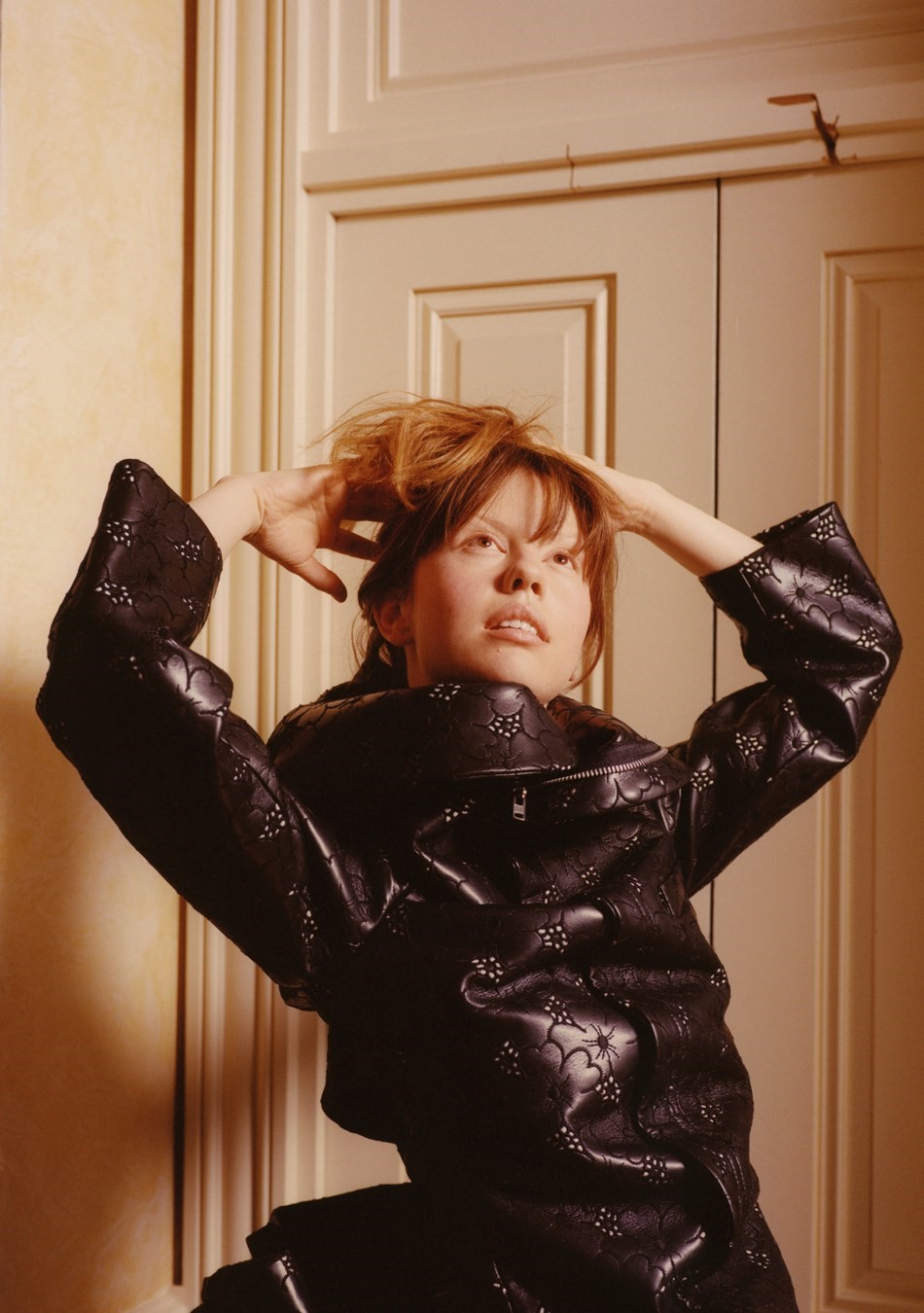
Goth is currently shooting Frankenstein for Guillermo del Toro. She plays Elizabeth, presumably, Victor Frankenstein’s betrothed. This is how Mary Shelley describes Elizabeth in the book: “Her brow was clear and ample, her blue eyes cloudless, and her lips and the moulding of her face so expressive of sensibility and sweetness that none could behold her without looking on her as of a distinct species, a being heaven-sent, and bearing a celestial stamp in all her features.” Mia Goth, in other words. But such beauty was born to be desecrated. In the book, Elizabeth is brutally dispatched by the monster created by her fiancé. “I don’t know how much I can say about that,” Goth says discreetly, which suggests del Toro may have his own ideas about the original text.
On her days off during filming in Toronto, she has taken to shadowing the director on set, watching him work. “I’ve never done that before. It’s been interesting to experience what a film set is like when you’re on the other side of the camera. It’s highlighted for me how vastly different the two experiences are. It really does feel as though, when you’re in character and you’re getting ready to step onto a set, you do enter another realm and crafting the scene starts before they ever call action. There’s a whole bunch of steps you can do to get you into a frame of mind where it doesn’t even feel like a film set any more.”
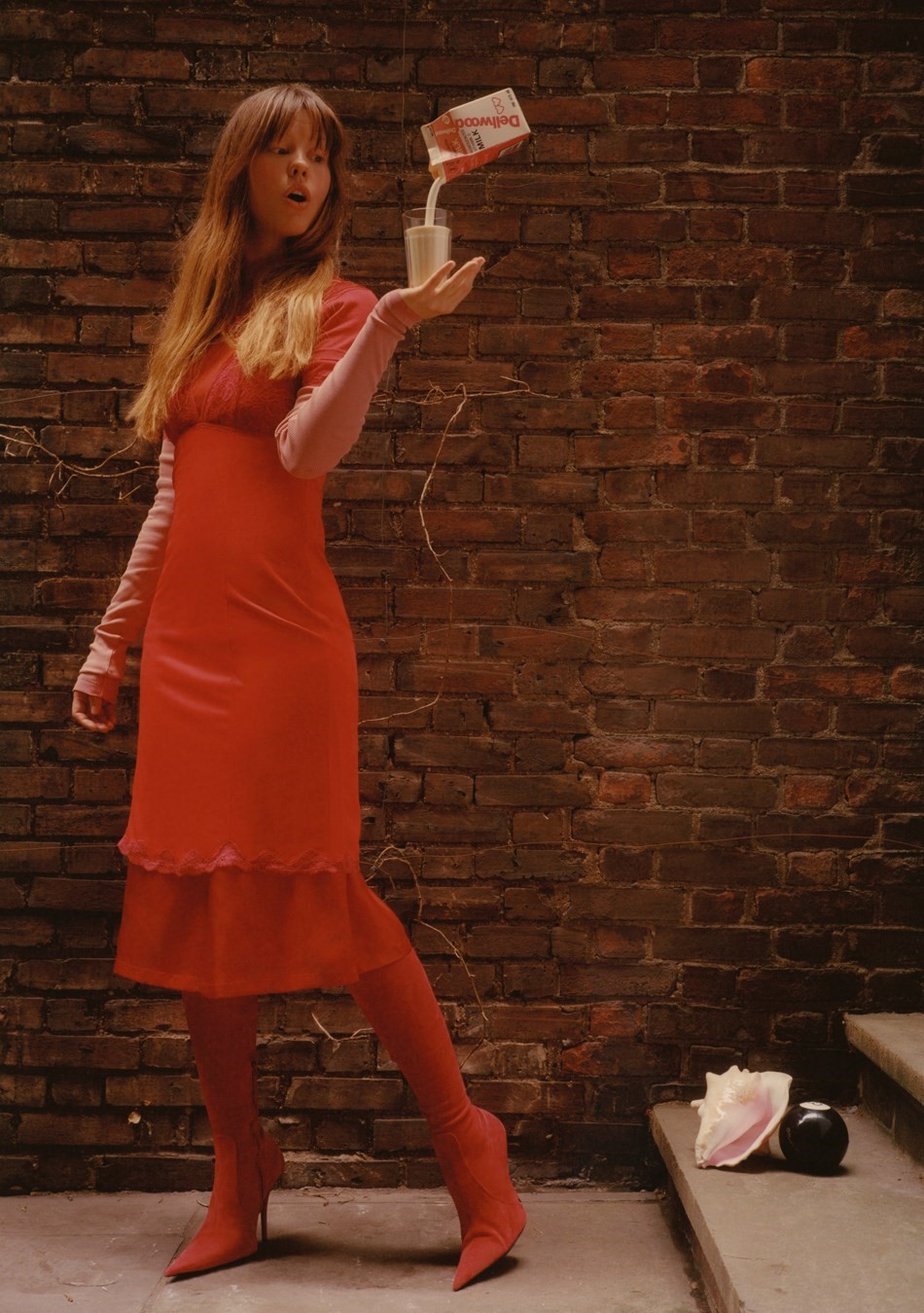
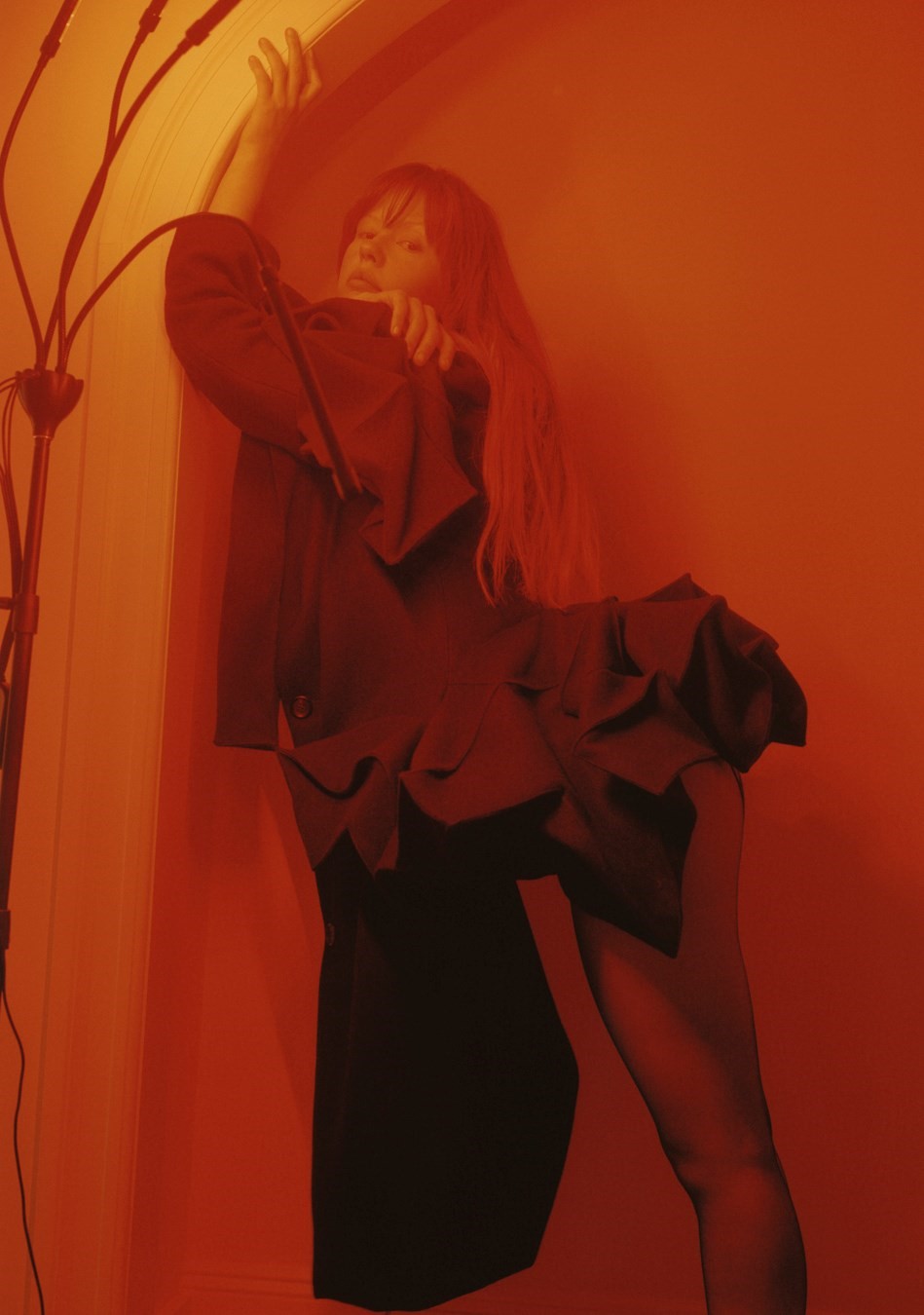
Yes, she has rituals. “And then the rituals, hopefully, maybe can lead to something spiritual. I wouldn’t call it transcendence, but the most liberated, the most confident I ever feel is while on a film set. I feel like I have total agency. I know what feels right. I know what’s not working and I don’t need to seek validation in the same way that I do in my day-to-day life. I just feel free.”
Behind her when we talk, there is the standard Zoom backdrop of well-stacked bookshelves. But they look serious, like books that might belong to a collector, first editions even. And the bookcases are offset by a huge photograph of Charles Bukowski, the German American maverick whose hard-boiled writing has sustained an ardent cult since his death in 1994. Goth discovered him when she was 18, making her first film, Nymphomaniac: Vol II, in Germany. “I fell in love with his poetry. I appreciate his blue collar approach to writing – it’s very nuts and bolts, very accessible. He’s not trying to be something he’s not. It’s refreshing. It’s authentic.
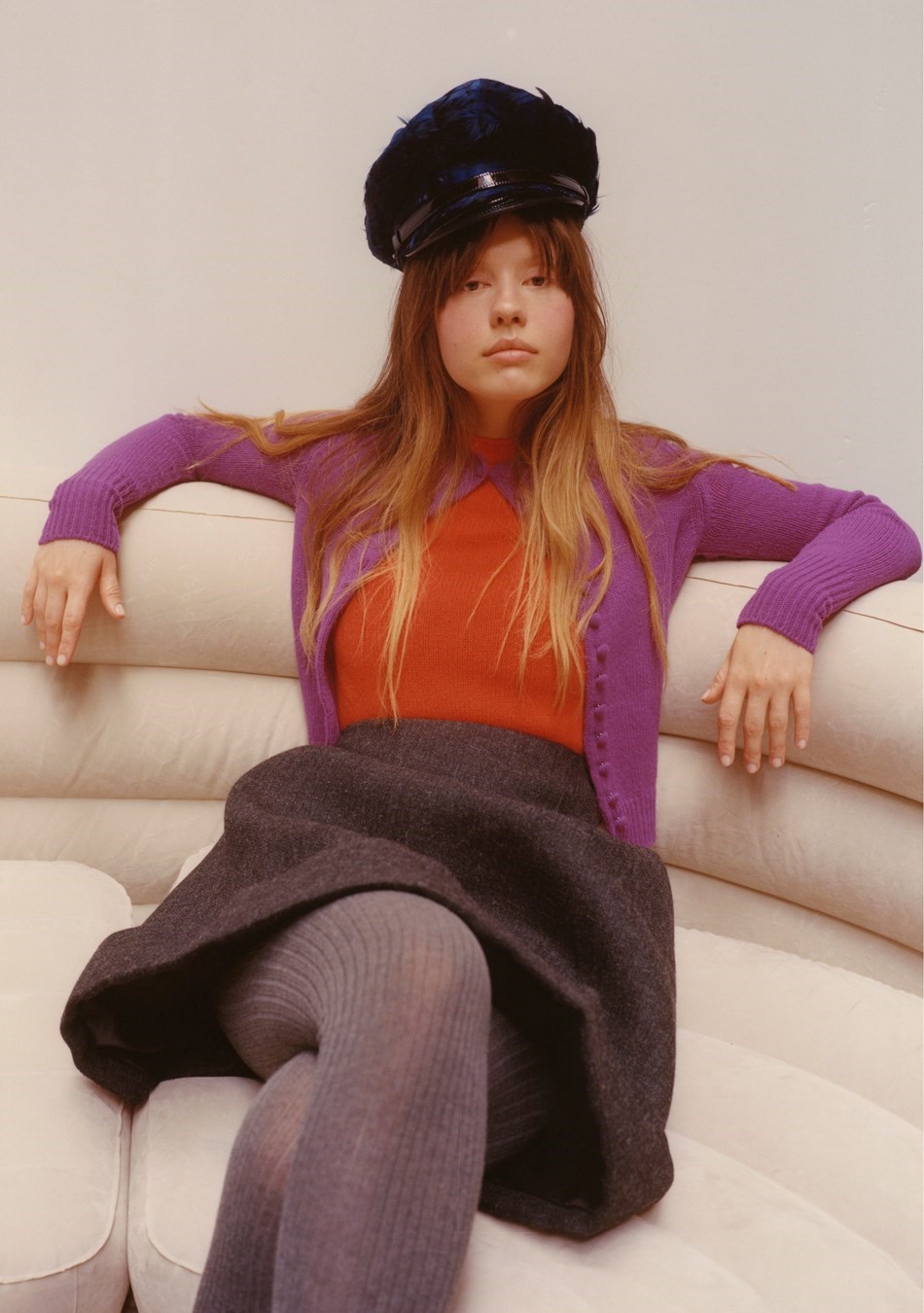
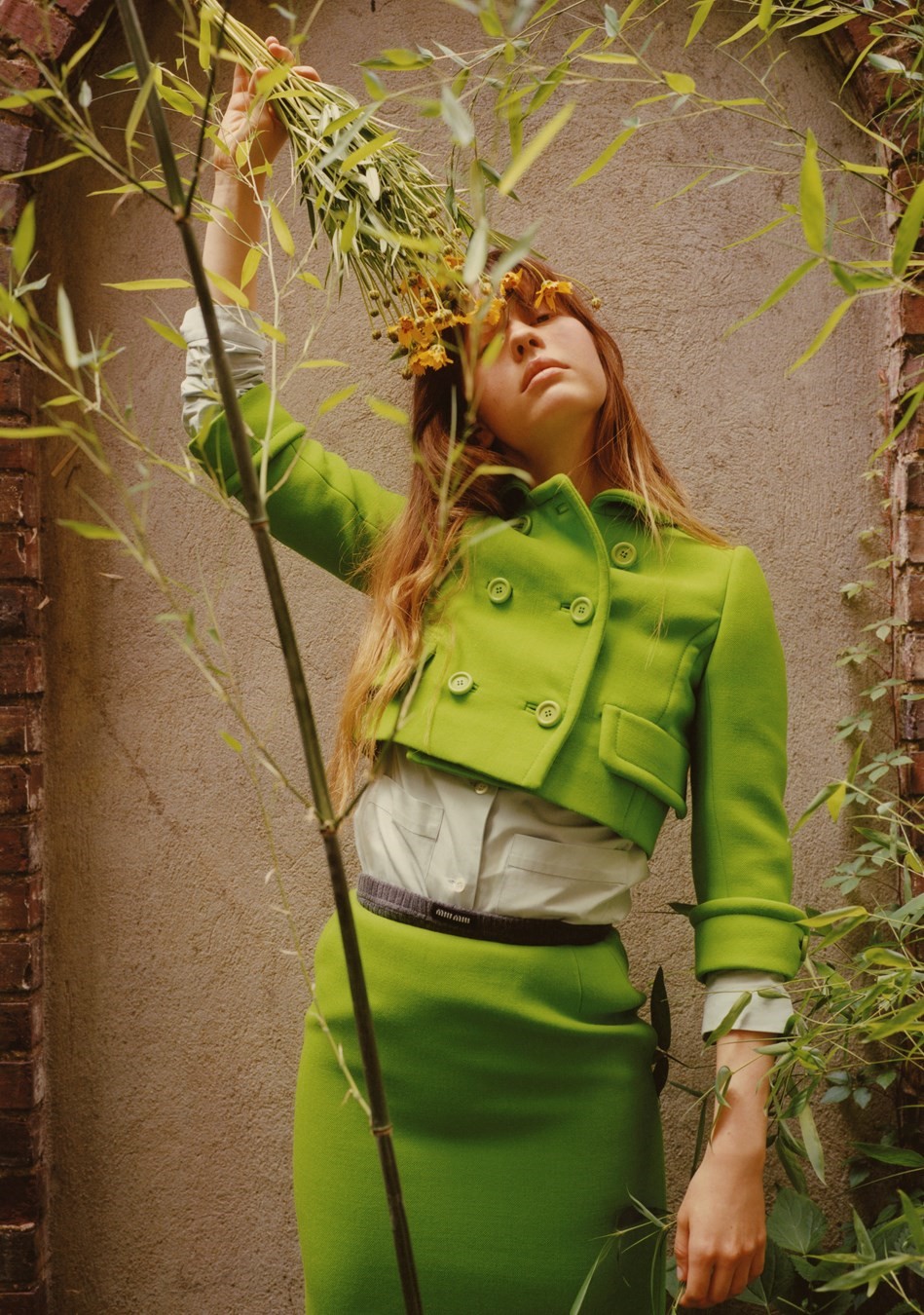
“Same with acting – I tend to gravitate towards actors that take a less philosophical, less intellectual approach to the craft. I don’t think that acting is an intellectual sport. Some people like to pride themselves on it being that. But sometimes you can be on set and you can think yourself out of a scene. Think too much about it, talk too much about it. Sometimes I’d rather just do the scene and not talk about it at all. And then if it’s not working for some reason, we can discuss it, but it’s a feeling sport. You can’t think yourself into feeling.”
That’s an indication of the incredible viscerality of Goth’s performances. “Yeah, that’s the dream, that’s what you hope for,” she says. “Acting is the most elusive of the art forms, it’s like trying to grip smoke. You think you have it and then it disappears.” She feels she has at least one moment in every scene she films where she manages to grip the smoke. “I do try to lose myself to it as much as possible. I’m not even really thinking it when it’s taking place. Often I’ll have directors come up to me and ask me to do this thing again, but I wasn’t even aware that I did it.”
The director she has established the most intuitive connection with is West. The storylines in the three films they have made together – X, Pearl and MaXXXine – interlace. In the first film, set in the 1970s, Goth plays Maxine Minx, a porn starlet filming on a farm in Texas, where the long-dead showbiz aspirations of the elderly farmer’s wife, Pearl, are activated to homicidal effect by the presence of the film crew. The second film tracks back to the first world war and the circumstances that denied Pearl her ambition. The last film follows Maxine Minx to Hollywood in the 1980s, where she transcends porn to find success in the mainstream. Just to be clear, Goth is Maxine and Pearl throughout. To describe her trajectory through the trilogy as a tour de force scarcely does it justice. She has a portfolio of best actor nominations as testimony (the Seattle Film Critics Society also nominated her as best villain for her performances in the franchise).
“Acting is the most elusive of the art forms, it’s like trying to grip smoke. You think you have it and then it disappears” – Mia Goth
“I don’t know if I’ll have another role quite like Pearl again,” Goth says. I’ll second that. In an ideal world, those nominations would have included an Oscar. Her embodiment of the character was so complete it made me wonder how she switched off at the end of the day. “I had to, to save my energy. Because acting is all energy, it’s a marathon. And it would be too hard to sustain that for the entire shoot. Frankenstein is a seven-month shoot, so not switching off is just not realistic. And it’s not necessary.”
She never had training, doesn’t subscribe to one school or another about an approach to acting. “I just kind of create my own method, which is what all other methods are anyway. Before I shot a scene the other day, I just happened to be reading David Mamet’s True and False, which is one of my favourite acting books, it calms me down every time. I came to a part that I guess I’ve read 100 times before but it never really stuck out to me. It was like I was reading it for the first time and it just clicked. He was talking about sitting in that discomfort and in that nervousness and not taking a breath beforehand. Because as insignificant as a breath may be, you’re denying the audience the opportunity to witness something really honest and vulnerable. You know, just start the scene and work through the discomfort, the nervousness, the fear. And I happened to do that for the scene I was filming and it really worked. I’m always learning.”
That’s clearly the case, because Goth’s performances are fearless, and West’s directorial eye has a way of highlighting that fearlessness. Take two close-ups. The camera holds on Goth’s face at the finale of Pearl for what should be an uncomfortable stretch of time while she smiles and the string-drenched soundtrack surges. Same thing in MaXXXine, when the porn star auditions for a panel of conventional Hollywood types who couldn’t be more patronising. West stays tight on her face while her monologue slays. His trust in Goth is thrilling.
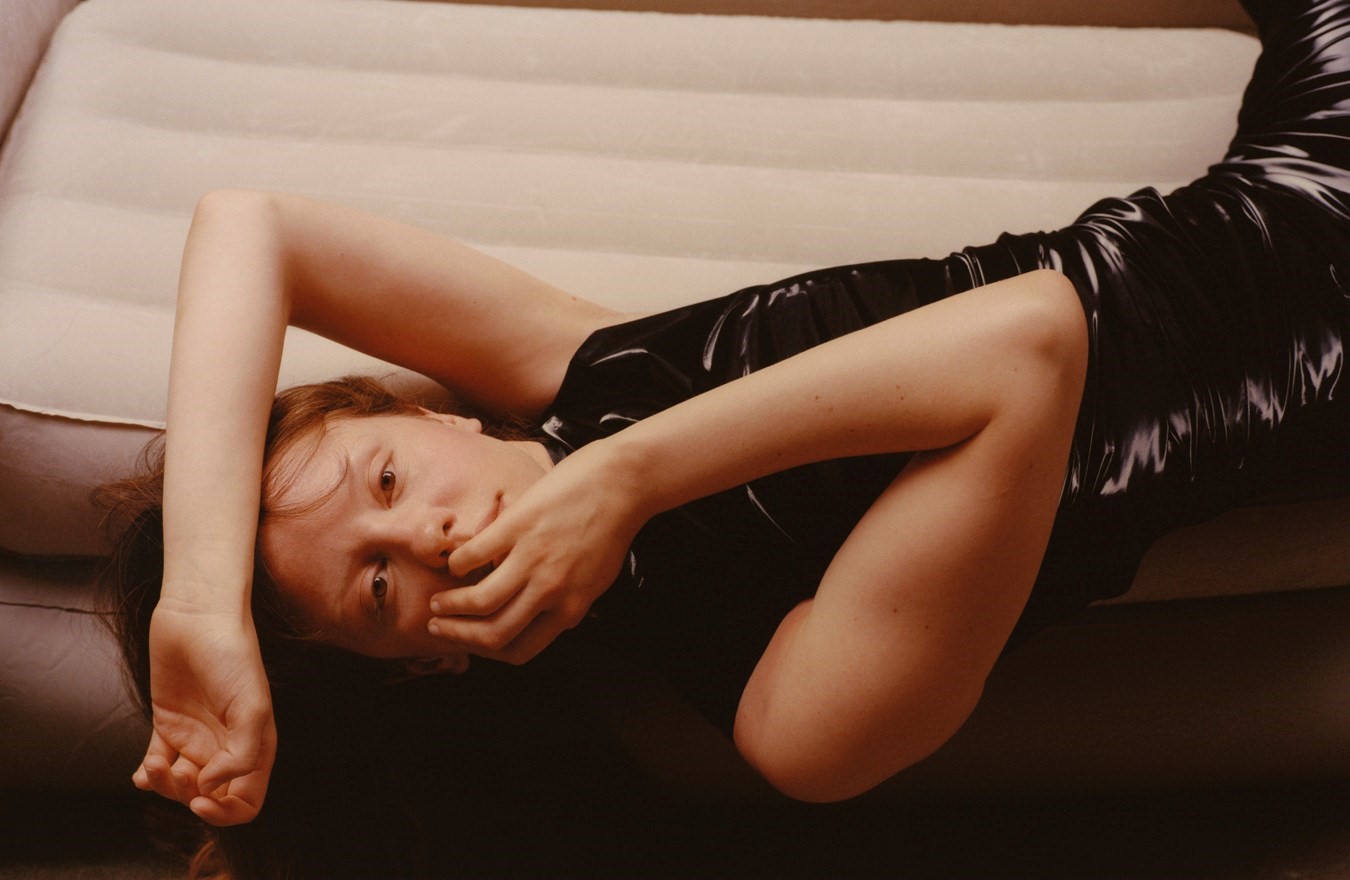
And that’s kind of how Pearl happened. X was filmed in New Zealand during the pandemic, and with all the quarantining and the resourcefulness involved in preparing that film, West suggested they might as well stay and make another movie, perhaps a prequel focusing on how young Pearl became the homicidal maniac in X. And he also suggested that, because Goth was Pearl, it would make sense if she helped him write it. “Ti asked me what my favourite movies were, and one that stuck was Lars von Trier’s Dancer in the Dark. One of his favourites was The Wizard of Oz, and so Pearl is, in a way, Dancer in the Dark and The Wizard of Oz if they had a baby.”
They imagined their film in black and white, which was enjoying a very fashionable moment at the time. The producers, A24, insisted on colour. So West went to the other end of the spectrum and made a film in colour so glorious it evokes the wonders of Technicolor. “It just goes to show that sometimes a roadblock really leads to something better,” Goth acknowledges. “I think it ended up informing me as to who Pearl is, to make sure that she was in the right movie. That’s how she took on this larger than-life persona against the backdrop of a Technicolor fever dream. She probably would have been a different person if it was a black and white movie.”
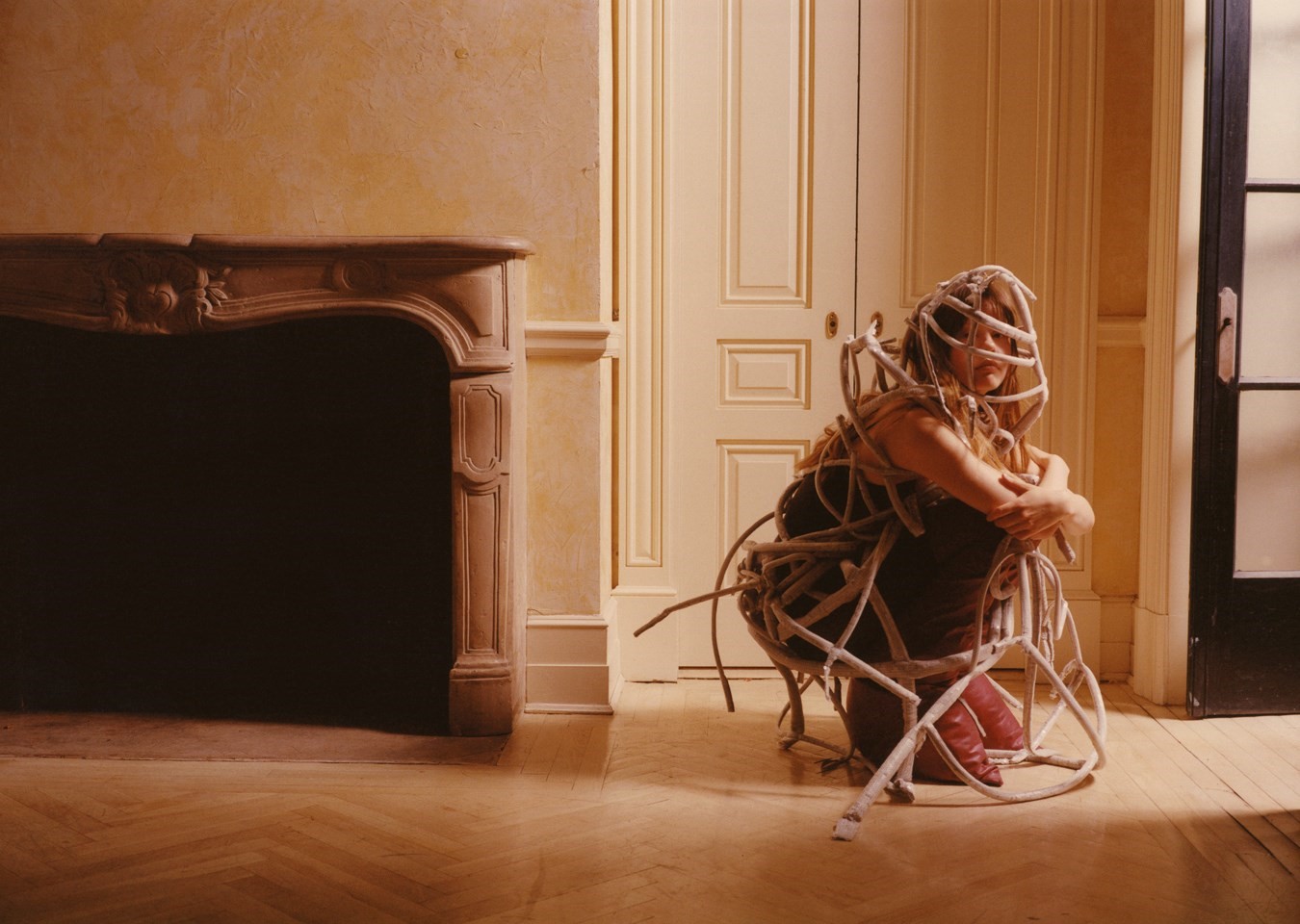
One of the most memorable descriptions of Pearl that I’ve read was “a deranged Disney heroine driven mad by her longing for the life she desires”. There’s a mythic core in that notion, which connects with Goth’s reverence for Björk’s performance in Dancer in the Dark. “I love the role Björk played of this woman drifting further and further into her imagination, into her creativity as a way to deal with everything else that was going on around her in real time. It’s one of the best female performances ever, and I don’t think people talk about that. It’s a perfect movie.”
It was, of course, von Trier who plucked an 18-year-old Goth from secondary school and set her amid one of the greatest art film casts of all time for his celluloid diptych Nymphomaniac (it was screened in two ‘volumes’). Björk notoriously had a terrible time with von Trier on Dancer in the Dark, but Goth’s time with him couldn’t have been more different. “It’s one of the greatest experiences of my life, and I knew that in the moment. Usually you look back on something in retrospect and think, ‘Oh, that was a great time, I wish I’d soaked it up more,’ but no, I was fully in the moment and I knew this was amazing, every second of it. Lars was so respectful and kind and generous and supportive, and I felt nothing but love from him. It couldn’t have been a better film to begin with.”
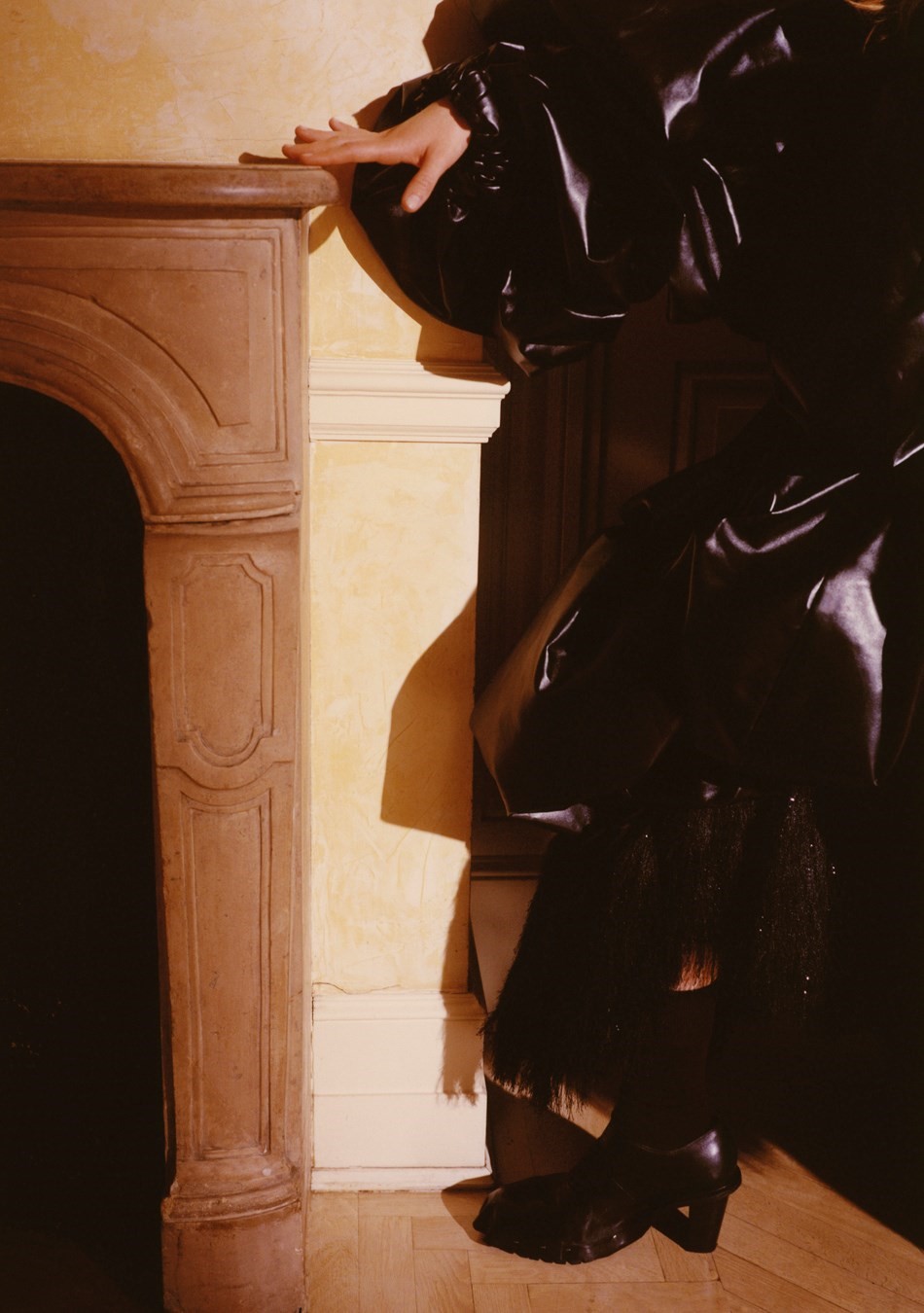
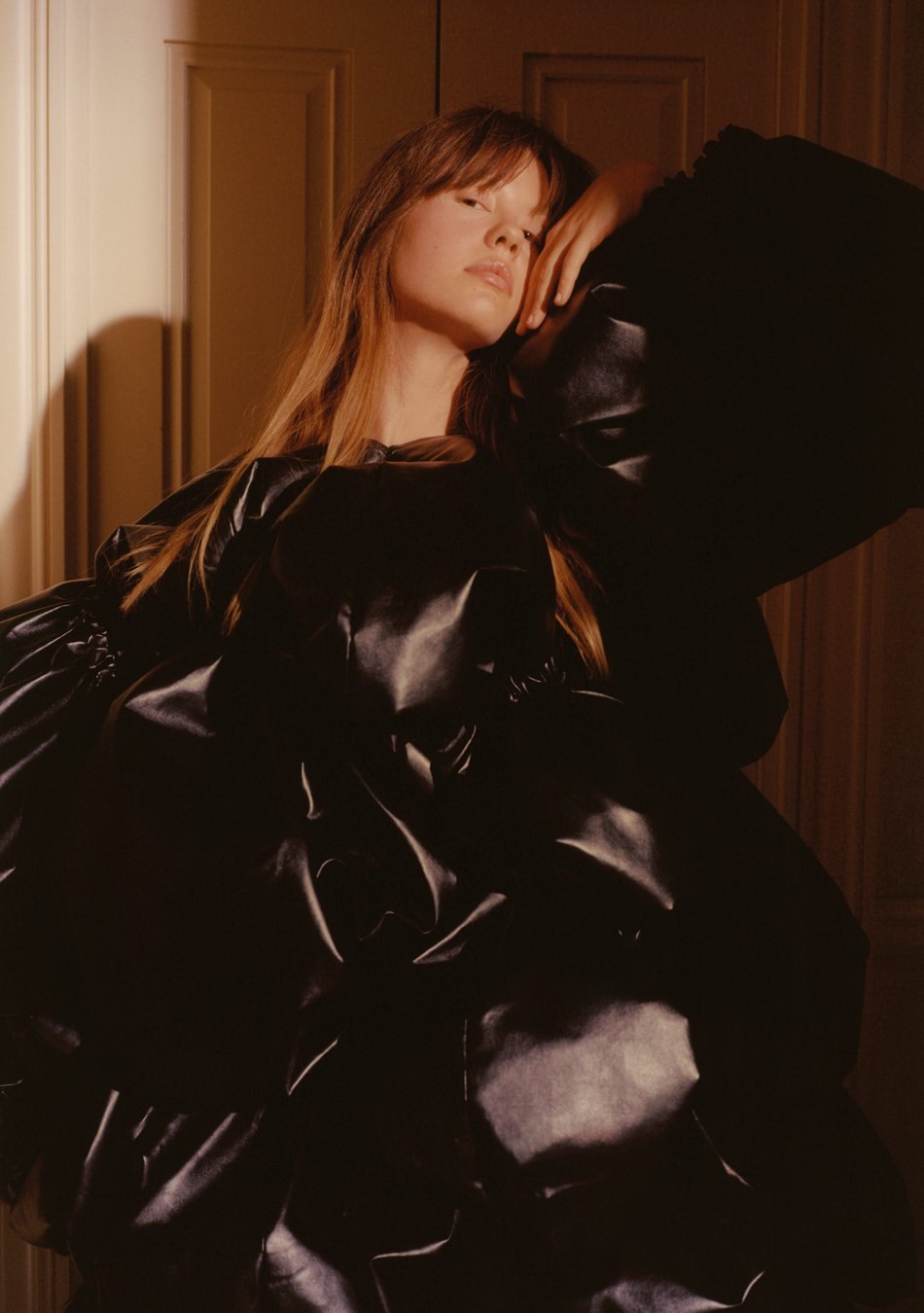
Goth felt especially taken care of because she was the same age as von Trier’s own kids. “He would always tell me that if something didn’t feel right to just replace it with something else that felt more natural to me.” In the film she was naked, she got fucked and she pissed on Charlotte Gainsbourg. So you have to question what particular qualities von Trier recognised in an absolute ingenue that made him think she was capable of everything he had planned for her. After all, Goth insists she was probably more innocent than most 18-year-olds, even into her early twenties. “Girls try to shed that a lot quicker, but I look back at pictures and think I was just such a baby,” she says. The UK-based Advertising Standards Agency agreed when it banned Miu Miu’s Spring/Summer 2015 campaign after it received a complaint about the apparent sexualising of an “underage” model. (Goth was 21 at the time.)
So what was it exactly that von Trier, first, and West, much later, were drawn to? (Somewhere in the middle, Goth participated in Autumn de Wilde’s 2020 revision of Jane Austen’s Emma, which complicates things in a rather delicious way.) When West first interviewed her for X over Zoom, it was her determination to be the lead in a movie, to show the world what she was capable of that charmed him. “I explained to her it was two roles, Maxine and Pearl, and she said she could kill both parts,” he says. “She was adamant that she would exhaust herself, leave it all in the field, for the opportunity. And that’s how she was – insatiably dedicated to the roles. She was ready to be the star of a movie. And it was amazingly serendipitous that that was already in the script.”
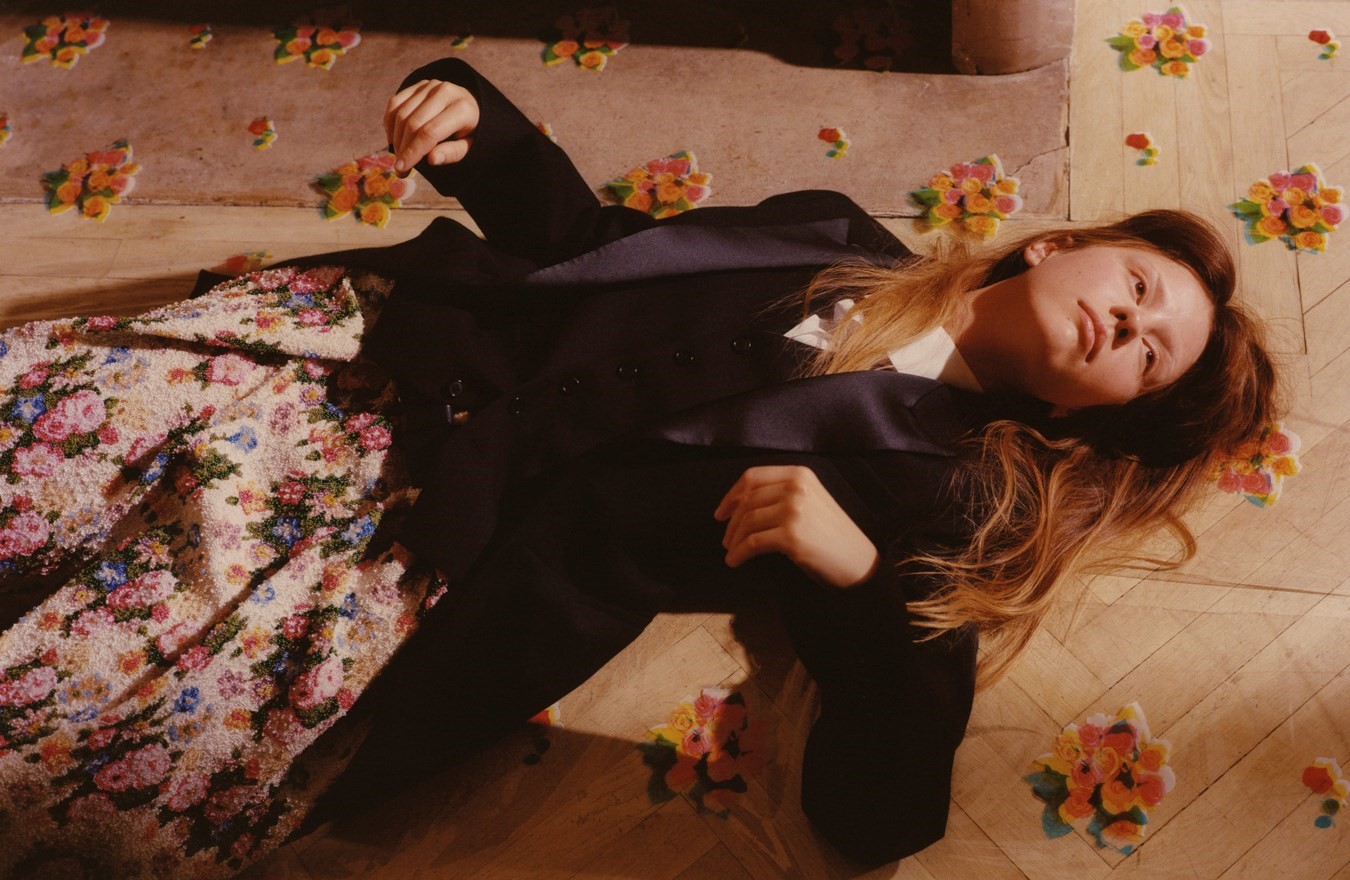
West is much less taken by my theory that there is no actor who does a better job of reconciling the irreconcilable extremes of innocence and depravity, purity and decadence, God and the Devil in one beautiful ball. “I just saw someone who cares a lot about performance,” he says. But I think we can rope Brandon Cronenberg’s Infinity Pool into West’s unsettling corral. Poor Alexander Skarsgård never stands a chance against Goth’s wilfully erotic sprite. “One of the ways I prepped for that movie is I would go to a bar and just sit there and flirt with men and try to figure out where my power lies, and then exercise my power in that way. That helped a lot when I was working with Alex and everyone else.” When you watch the movie, you’ll realise that resistance is futile.
She believes everyone embodies the kind of dualities I’m presenting to her. I suggest to her that most people would deny such things in themselves. Movie stars are a breed apart. I wish I could remember the philosopher (Edgar Morin?) who suggested that it’s what stars don’t have that everyone else has that motivates them. Their hunger for popular validation fills a hole in their soul. “People who choose to be performers, there’s something in them they perceive as value and they want the world to see it,” West says. “There’s a desperation to change their situation and to use their intrinsic talent to do it. It’s a high-stakes game.”
That notion is cause for a very long pause from Goth. “I think actors are weird people, the best ones anyway,” she eventually offers. “They’re socially awkward and strange. And that’s probably why they get into acting. The easy, charismatic ones that are great in social settings and at parties don’t tend to be the best actors. It’s the other ones that are just a little weird, that find refuge on a film set where they can part ways from who they are for a little bit and be other people, those are the best ones.” Obviously I ask her if that’s how she sees herself. “Well, of course I’m gonna say I think I’m a weirdo. I do think I’m somewhat socially awkward and interviews like this make me very nervous. And I’m always questioning what it is I’m saying and I’m trying to get better at that. But yeah, I guess what I was saying earlier, I feel much more comfortable on a film set.”
“They’re all characters, but they’re all me, they’re all facets of me. I don’t actually want to lose that connection with myself” – Mia Goth
It’s a truism that acting is therapy for actors. Goth puts the truth in the truism. “When I open up a script and start trying to make sense of it all, I have to relate it back to my life. Invariably by doing that I’m going to start looking at my own shit, and putting that on to the characters too, and finding connections. It does become a cathartic experience. All these characters – this is the thing – they’re all characters, but they’re all me, they’re all facets of me. I don’t actually want to lose that connection with myself. I don’t want to feel disconnected from myself.”
The life that Goth connects to her characters has been tumultuous. “I come from a lot of struggle,” she says. Mia Gypsy Mello da Silva Goth was born in 1993 to a Brazilian mum and Canadian dad. Two weeks after her birth, her mum whisked her away to Brazil, where her grandmother was an actor, an inkling of manifest destiny. Mother and daughter moved back to England when Mia was five and then, when she was 10, they both went to live with her father in Nova Scotia. Seven schools in one year – that was never going to pan out. Two years later they were back in south London. “My mum raised me on her own,” Goth says. “She worked as a waitress when I was growing up, and we moved around a lot. I don’t want to get too much into that, though it definitely shaped who I am and I wouldn’t have it any other way. It’s given me a lot to pull from as a performer.”
Call it mother’s intuition, but her mum never lost faith that Goth was destined for greatness. At 15, she was scouted by Storm Models, from which chrysalis Kate Moss had emerged some years earlier. “I did do photoshoots and I would go on castings but it never took off,” Goth remembers. “There was a time when I used to get these BHS jobs, and that was great because I got a bit of pocket money and I was able to meet a crew for the first time. More than anything, it helped me get comfy in front of a camera. Being able to work through all the nerves and anxiety for the first time on a BHS shoot rather than in front of Lars von Trier on Nymphomaniac was very helpful.” And that’s when Miu Miu came knocking.
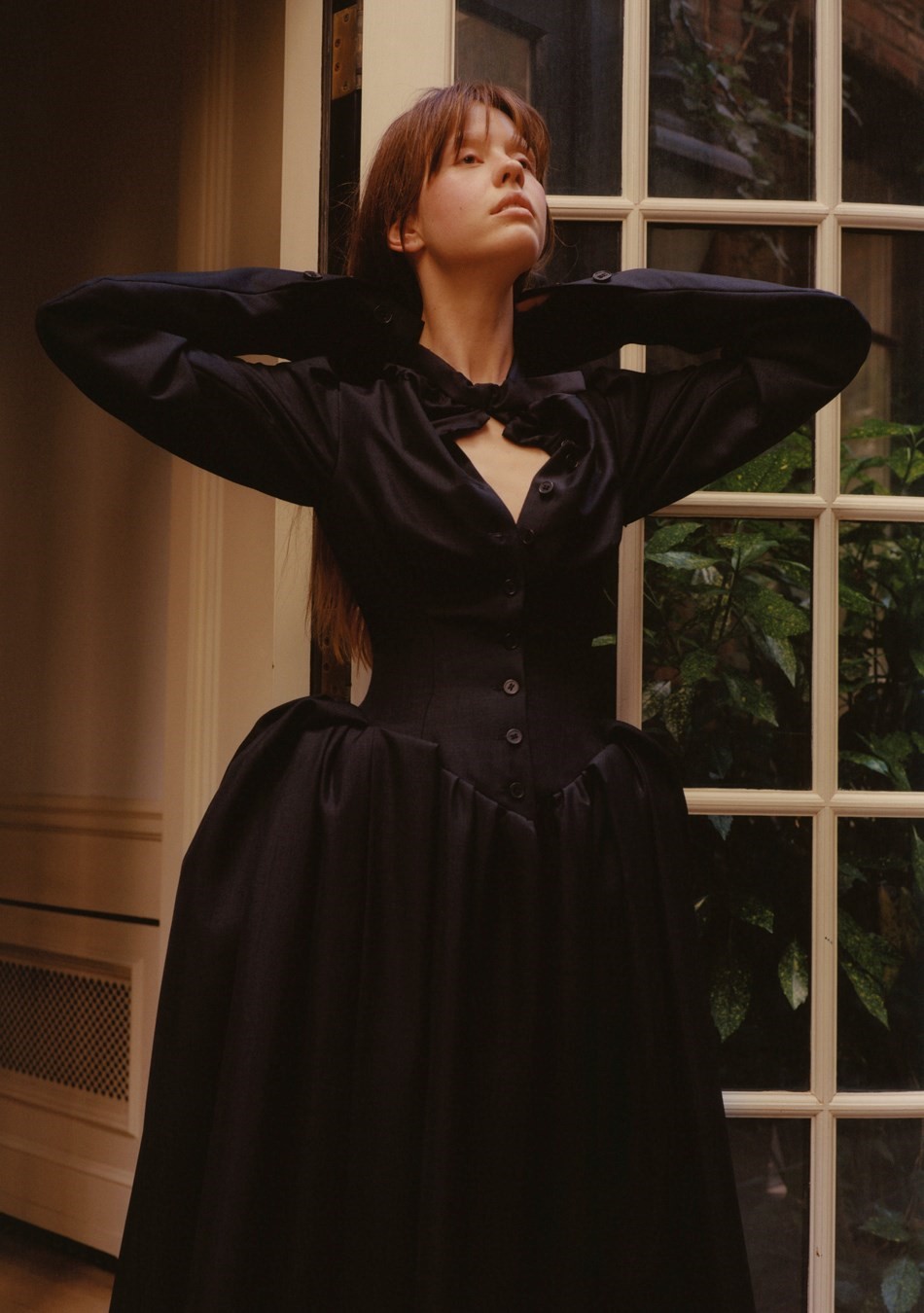
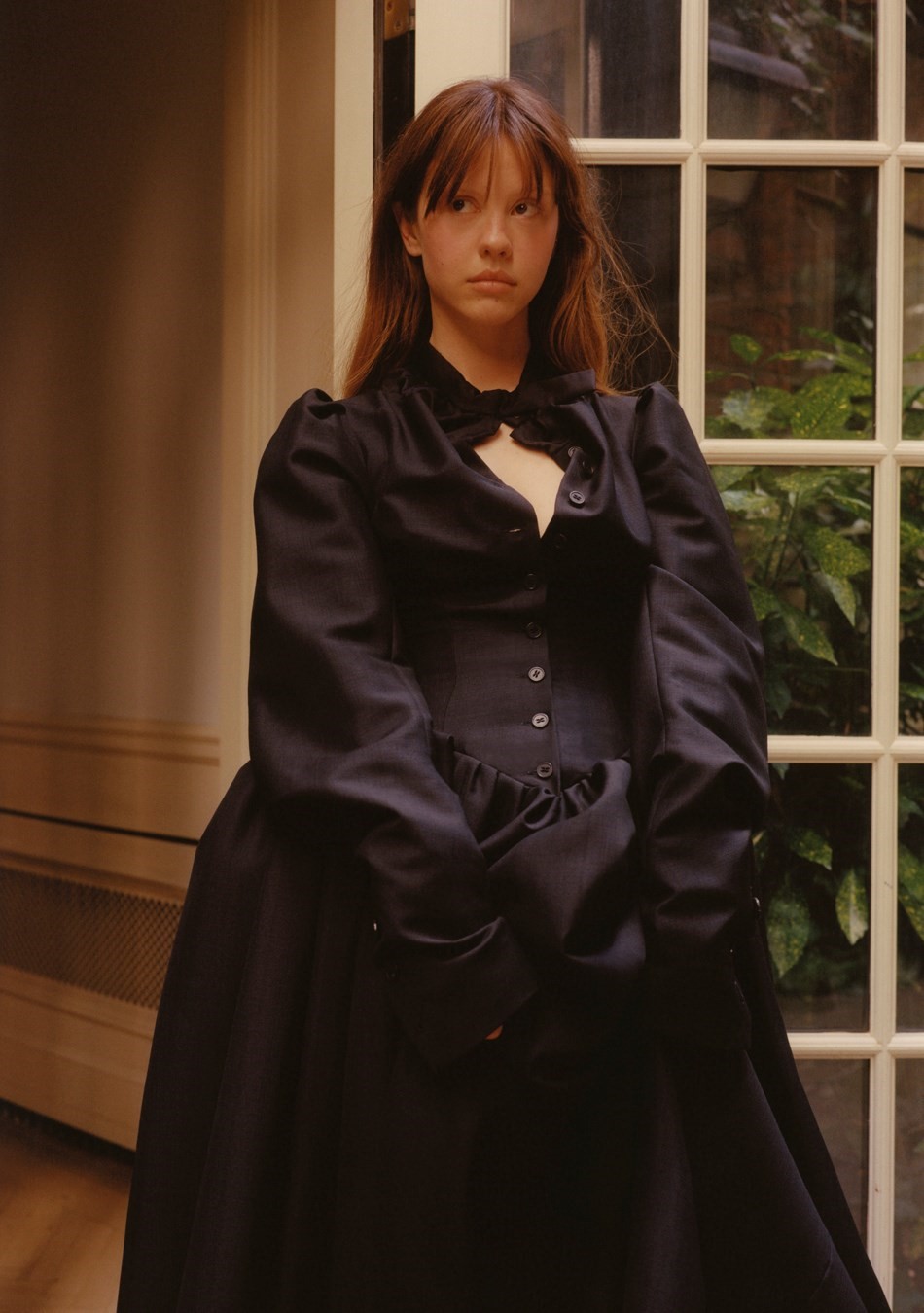
It was also on the set of Nymphomaniac that she met Shia LaBeouf. They married, divorced, reunited and had a child. Now Goth believes she wouldn’t have been able to make MaXXXine if she hadn’t had her daughter first. “The turnaround was so quick. Four years, three movies. I might have been a little more hesitant to jump into it right away but because I’ve had that experience and I’m still very much in the midst of it all, it’s given me such a pool of experience to pull from. It’s just changed me on a cellular level. I’m incredibly protective. I don’t have time for bullshit in the way that maybe I did in the past and maybe that’s helped a lot.”
And maybe that’s why Goth claims she wants to call time on the blood, gore and violence. “I’d like to go to the complete other end of the spectrum and make a love story. I love love, not like a romantic comedy, but one of my favourite movies is Blue Valentine, so that kind of tone. Sometimes I listen to music and there’s something so soft and delicate about it, and I think I want to make a movie that sounds like this.” We agree on the unfathomable beauty of the song Crystalised by the XX and I wish she knew how much Oliver Sim would love her to sing with him.
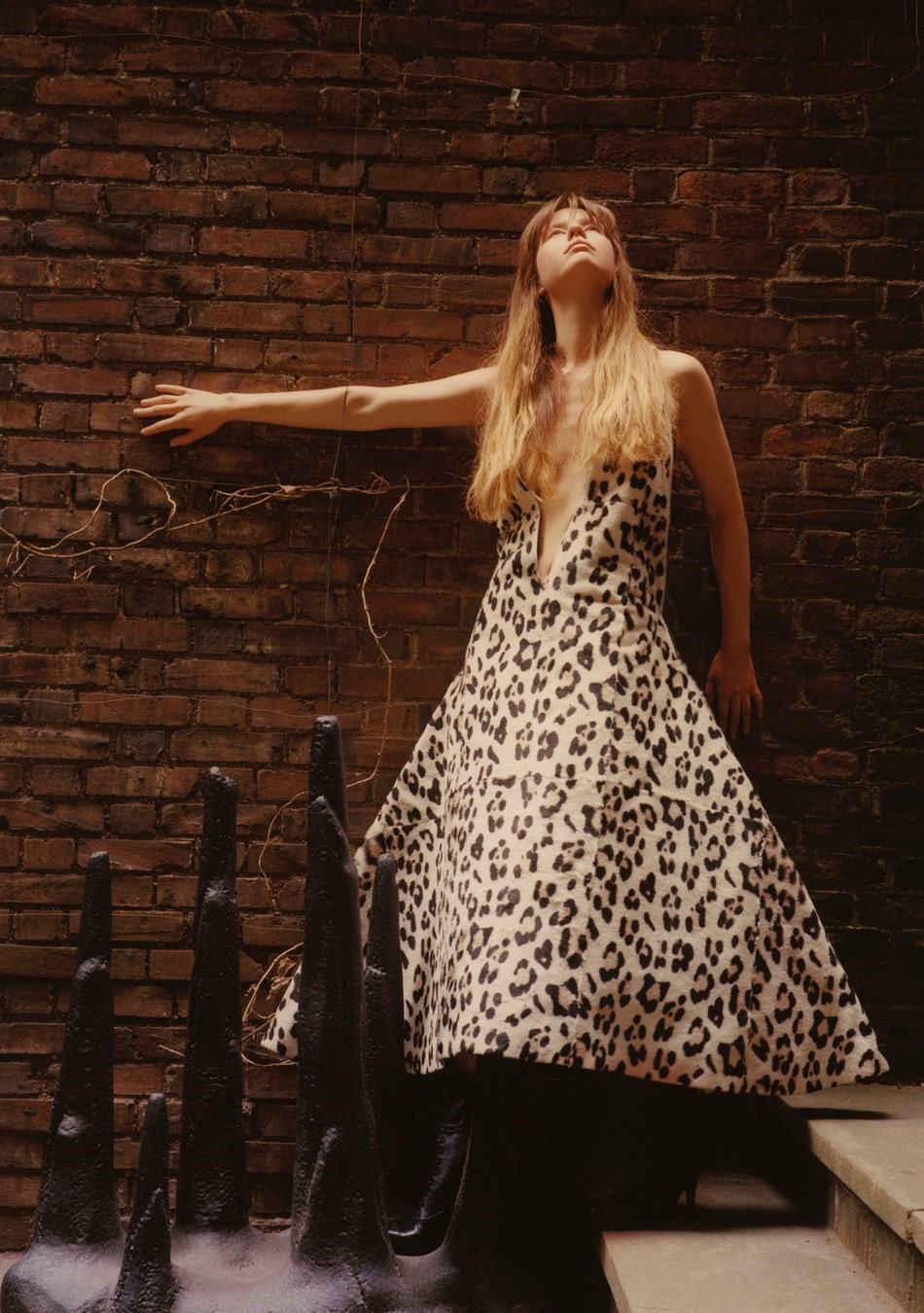
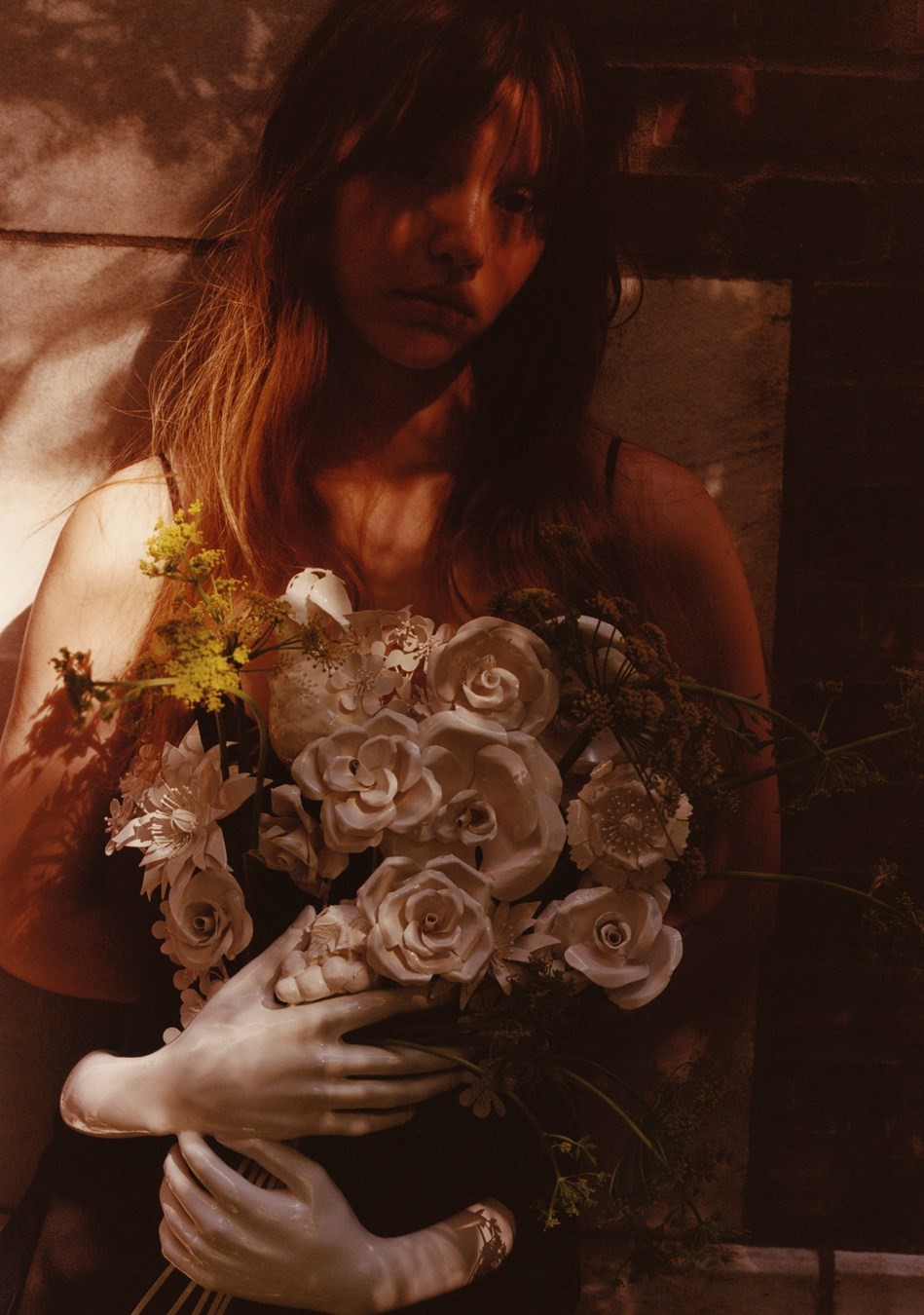
Though West doesn’t rule out a fourth episode in the saga, Goth says she’s tapped out. “I feel like I’ve given my all to these two characters.” But she accepts that Pearl will always be a part of her. It’s not just that she’s her favourite character, she also gets constant reminders from the girls who approach her on the street to show her their Pearl tattoos, or tell her how they’ve seen the movie hundreds of times and feel seen, no longer alone.
Pearl’s my favourite too, even more so when Goth tells me how she found the character on the first day of filming on the farm that was the location just outside Wellington. “I was coming out of the house, going to the barn, and I was walking past a field of sheep and I didn’t really know where the performance was going to go yet, and I began to feel a sense that I was walking towards Pearl in a strange way, and maybe this sounds silly or pretentious, but I felt like I really owed it to Pearl to give my all for this performance because she was finally getting this platform, this stage where she could perform for the very first time and the whole world would see and her dream would finally come true. I felt like I wanted to give that to her.”
Goth walks into MaXXXine too, in a dazzling sequence set to ZZ Top’s Gimme All Your Lovin’, which is fuelled by pure star-driven momentum. And you’re with her for the rest of her journey, until that last lingering shot where Maxine Minx’s (and Pearl’s) dreams of stardom have come true, and she stares down West’s lens and sighs, “I just never want it to end.” I don’t either.
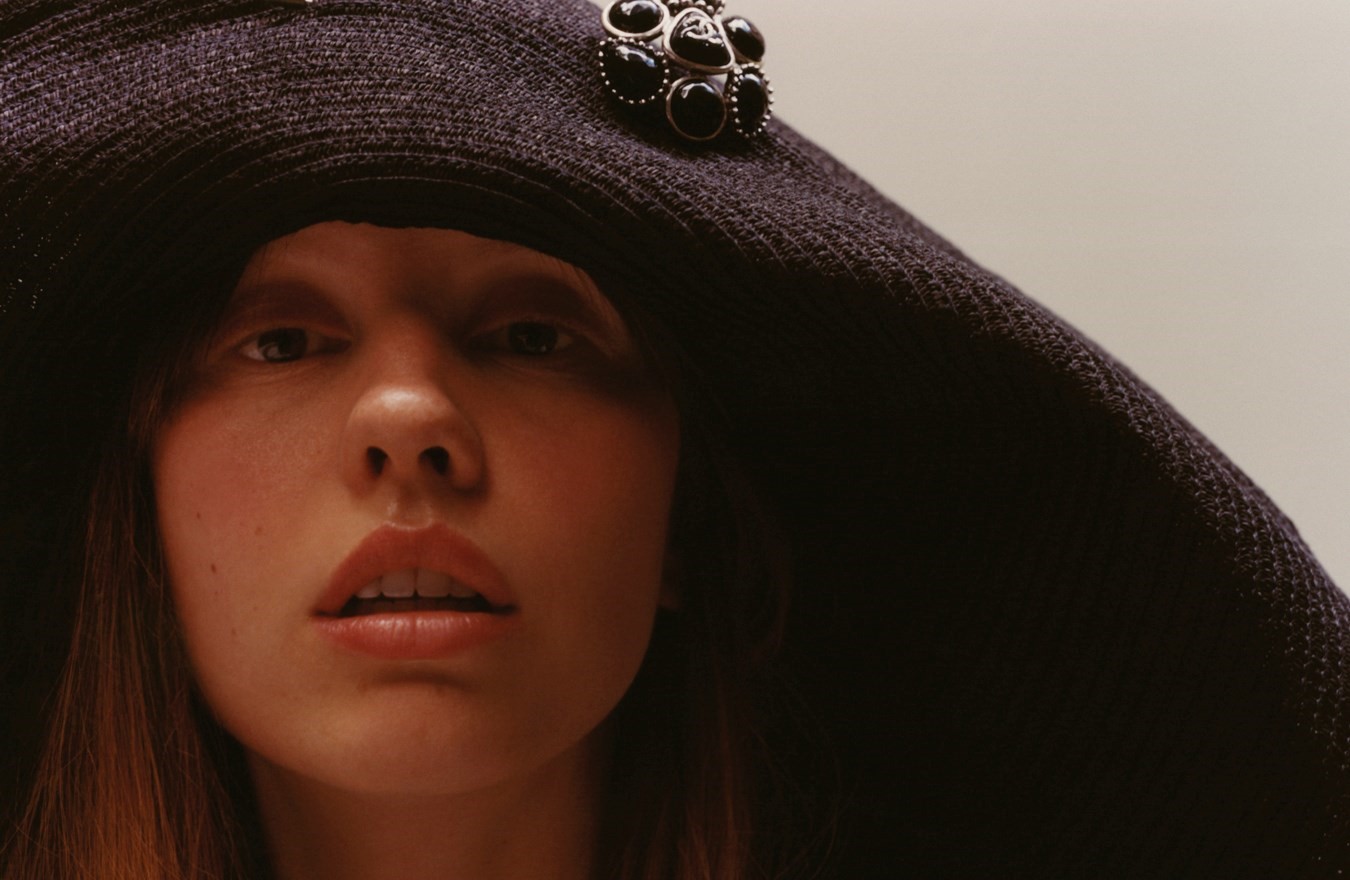
Hair: Tomo Jidai at Home Agency using ORIBE. Make-up: Mark Carrasquillo at R3-MGMT using LA MER. Manicure: Alicia Torello at Bridge using CHANEL. Set design: Andy Harman at Lalaland Artists. Photographic assistant: Jack Belli. Styling assistant: Precious Greham. Hair assistant: Christine Moore. Make-up assistant: Shoko Sawatari. Set-design co-ordinator: Bella Anselmi. Set-design assistant: Pauline Simone. Production: Jen Pio and Juliette Kenn de Balinthazy at Partner Films. Agency producer: Julia Levin. Production manager: Danny Goldberg. Production assistants: Dustin Eggeling, Neil Herrick and Ochan Ogak. Retouching: Andy Douglas at Lever Post. Special thanks to Vela Rentals
This story features in the Autumn/Winter 2024 issue of AnOther Magazine, which is on sale internationally on 12 September 2024. Pre-order here.
